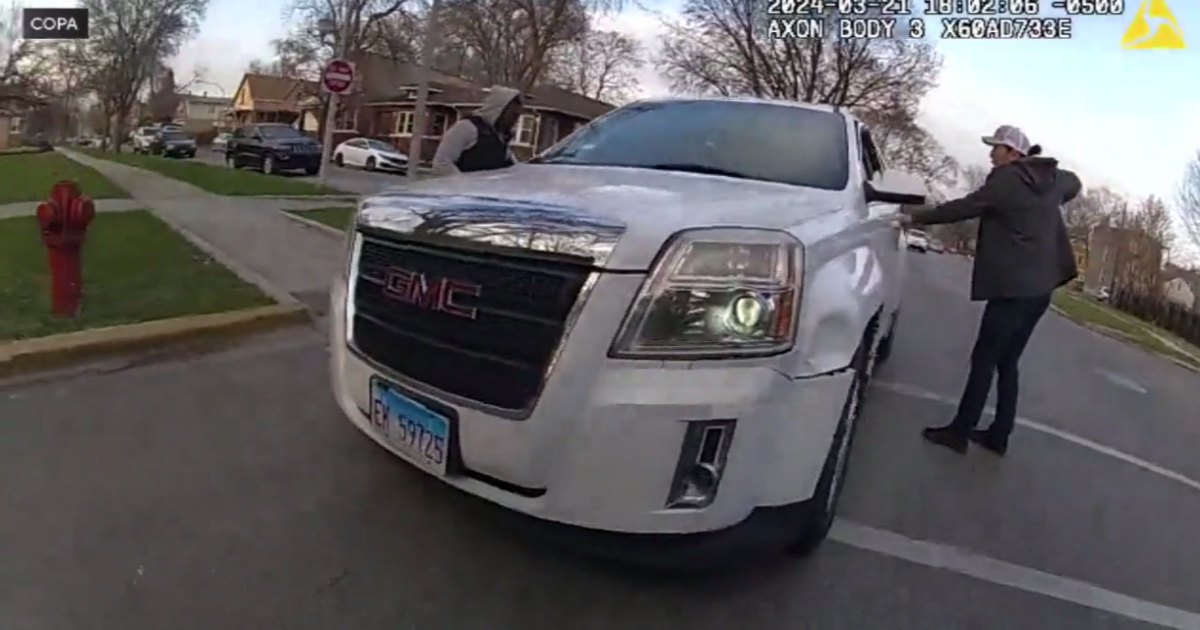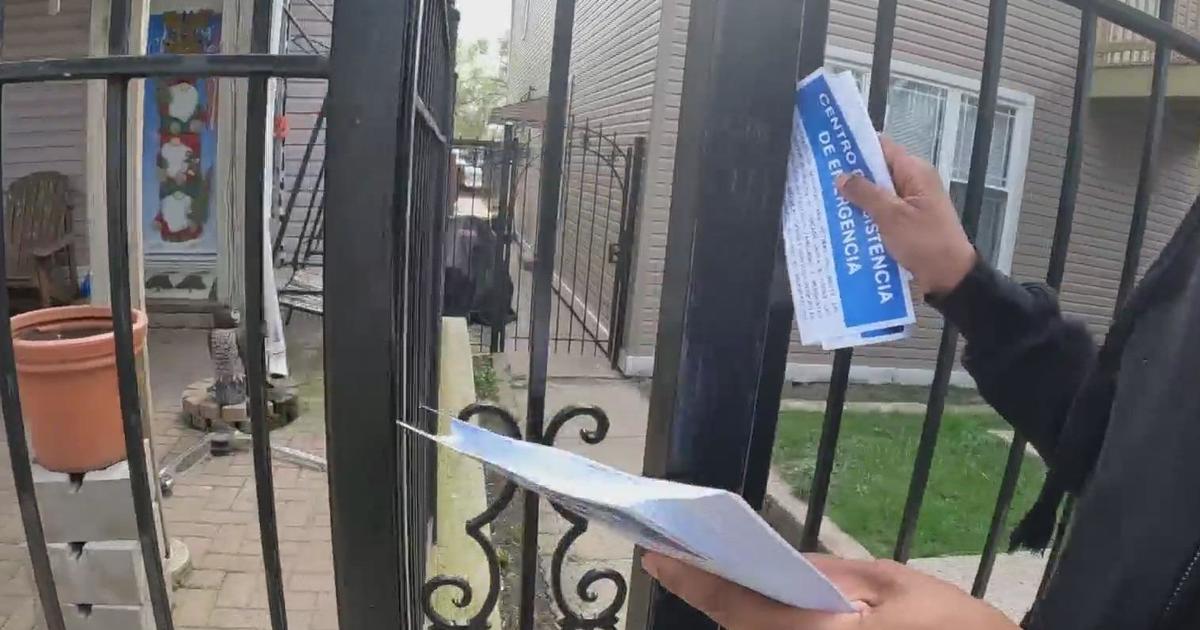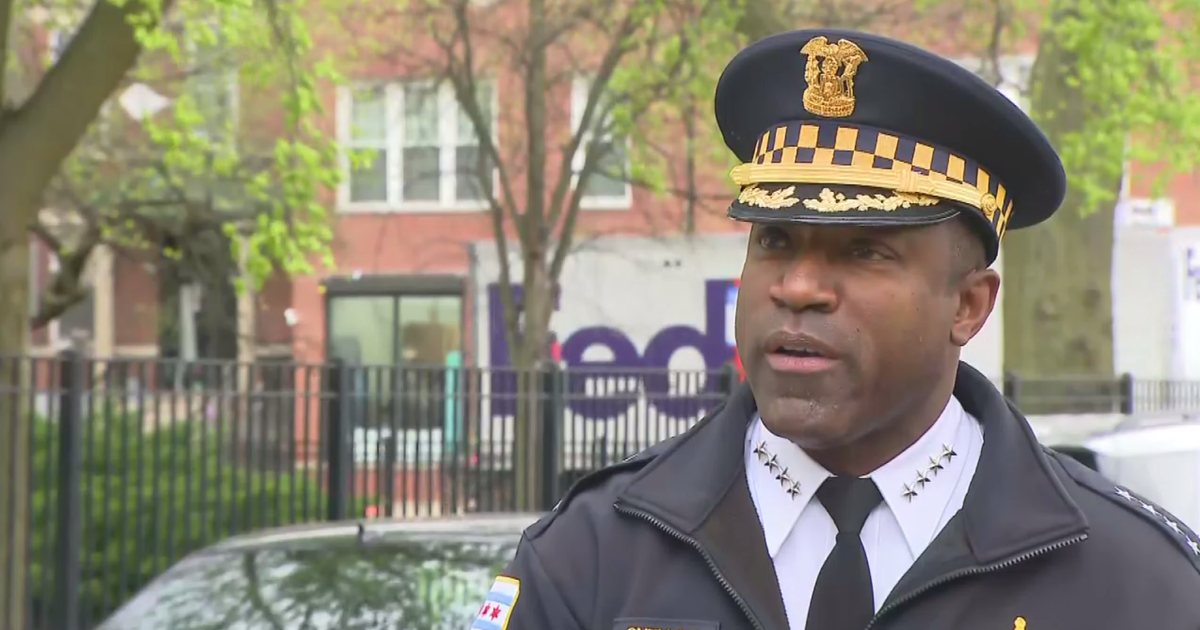Chicago Inspector General Recommending 'Urgent' Changes To CPD Search Warrant Policy To Address Wrong Raids
CHICAGO (CBS) -- As part of an ongoing audit of the Chicago Police Department's search warrant policies, the city's top watchdog is recommending CPD make critical changes, in an effort to create accountability in a system that has lacked it for years.
The "urgent recommendations" from the city's Office of Inspector General come as part of its review of CPD search warrant policies, launched as result of CBS 2's years-long investigation into wrong raids.
"In light of the urgent need to prevent serious harm to Chicagoans in the execution of search warrants at the wrong addresses, and in recognition of pressing public concern around these issues, OIG has issued preliminary findings and recommendations to CPD while the larger programmatic inquiry continues," Inspector General Joseph Ferguson's office said in an announcement Friday.
The announcement comes only two days after the OIG confirmed it is now investigating "possible misconduct" by city officials, including Mayor Lori Lightfoot's office, for how they handled the botched raid on the home of Anjanette Young and the aftermath.
In a letter sent to Supt. David Brown on Dec. 21, just one week after CBS 2 first aired the body camera video of the raid on Young's home, the OIG outlined its recommendations.
[scribd id=491741049 key=key-UBZcGZNHpbcmptS4Y5qq mode=scroll]
The letter takes aim at two key issues when it comes to wrong raids: faulty information used to obtain and execute search warrants, and how the department tracks incidents of officers raiding the wrong homes.
"CPD's directive on search warrants leaves gaps in CPD members' obligations to verify and corroborate the information upon which they rely in seeking a search warrant. Further, OIG found that the circumstances under which a CPD supervisor must initiate a disciplinary investigation following a problematic search warrant execution are too narrow," the letter states.
The letter noted CPD policy currently requires officers to independently verify an informant's information for so-called "John Doe" search warrants, in which the informant wishes to remain anonymous throughout the process, and has not been paid. The policy does not require independent verification for obtaining search warrants with the help of "unregistered confidential individuals," who are not paid for cooperation nor registered with CPD's Bureau of Organized Crime; or for "registered confidential individuals," who are eligible to be paid for cooperation, and are registered with the Bureau of Organized Crime.
In those cases, the policy requires only that the informant "has given repeated, documented, and verified information concerning prior criminal activity to a specific Department member or team."
"This may permit the execution of search warrants which are premised on unverified, uncorroborated information," the letter states.
In dozens of cases that CBS 2 has uncovered officers repeatedly failed to do their own police work and relied solely on bad tips from confidential informants, and ultimately raided the wrong homes, such as in Young's case.
Young was handcuffed naked when officers broke into her home in February 2019.
The inspector general's audit of the police department's policies and practices of search warrant executions also addressed shortcomings in the requirement to track incidents of wrong raids, a problem first exposed by the CBS 2 Investigators.
Last year's change to the search warrant policy requires the creation of a log if a raid is carried out at an address different than what is listed on the search warrant. But that doesn't account for the dozens of wrong raids CBS 2 found, including the one on Young's home.
The policy does not require a log when officers enter the address listed on the warrant, but learn the information used to obtain the warrant was faulty, according to the OIG's letter.
The inspector general's office therefore recommended CPD amend its policy on search warrants "to require verification and corroboration of information in all circumstances, and broaden the circumstances in which supervisors must initiate an investigation to determine whether discipline is necessary and appropriate when a search warrant execution goes wrong."
The OIG also recommended the department expand its search warrant policy to require the tracking of wrong raids that are the result of using faulty information to obtain and execute a search warrant.
In the wrong raids that CBS 2 uncovered, it's unclear if any officers have been disciplined. In 2019 – two years after the Mendez family was wrongly raided by police – lead officer Joe Cappello was deposed as part of the family's lawsuit. In his deposition, he admitted no one from CPD had talked to him about what happened, nor had he been issued any discipline.
OIG said Police Supt. David Brown accepted their recommendations and promised to make those changes. Brown also told OIG he plans to amend the search warrant policy to expand requirements for when disciplinary investigations are required, and has formed a "search warrant committee" to engage with the community regarding their concerns about search warrant policies.
"Importantly, the Department will engage with the community to listen to their concerns about the service of search warrants and to be more transparent into the changes we are making as an organization. As I have expressed repeatedly it is imperative that we, as a Department, work to regain the trust of the residents of Chicago," Brown wrote in a response to the OIG's recommendations.
However, no details have yet been provided on the CPD search warrant committee, or how it will operate.
Also From CBS Chicago:



